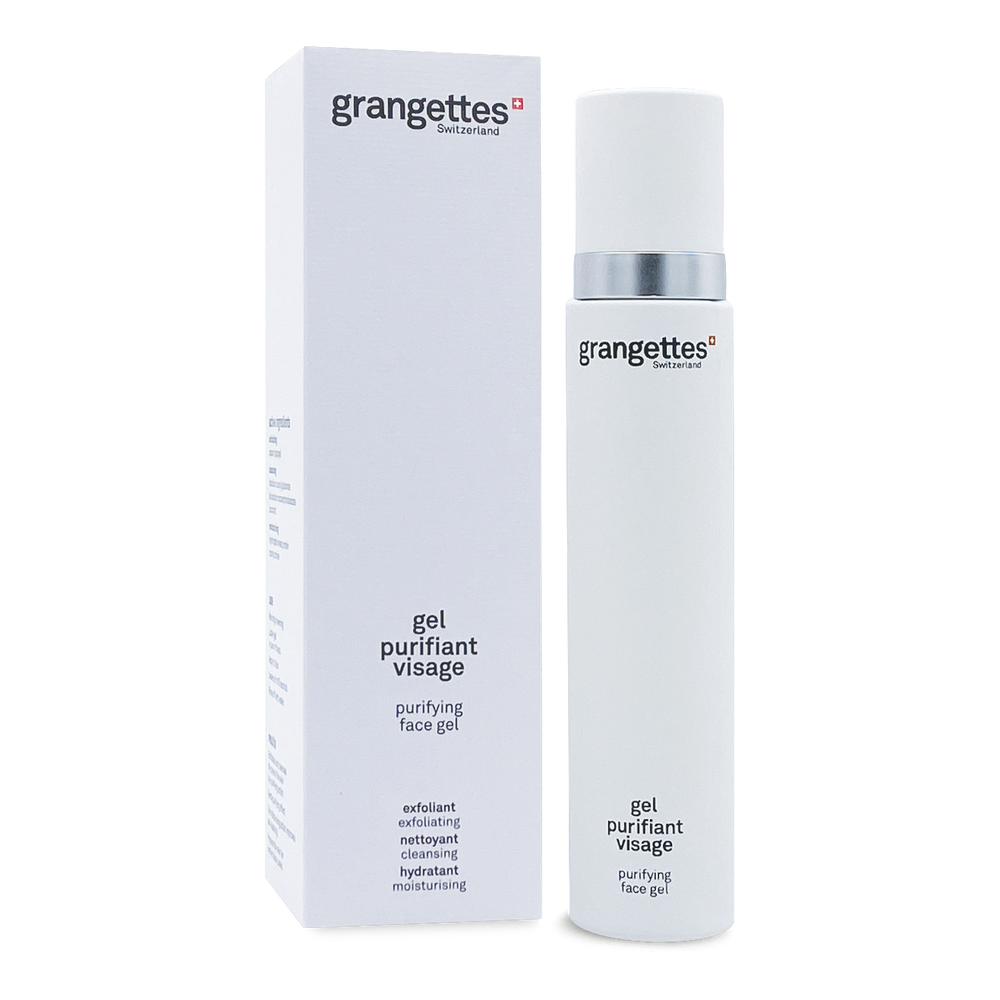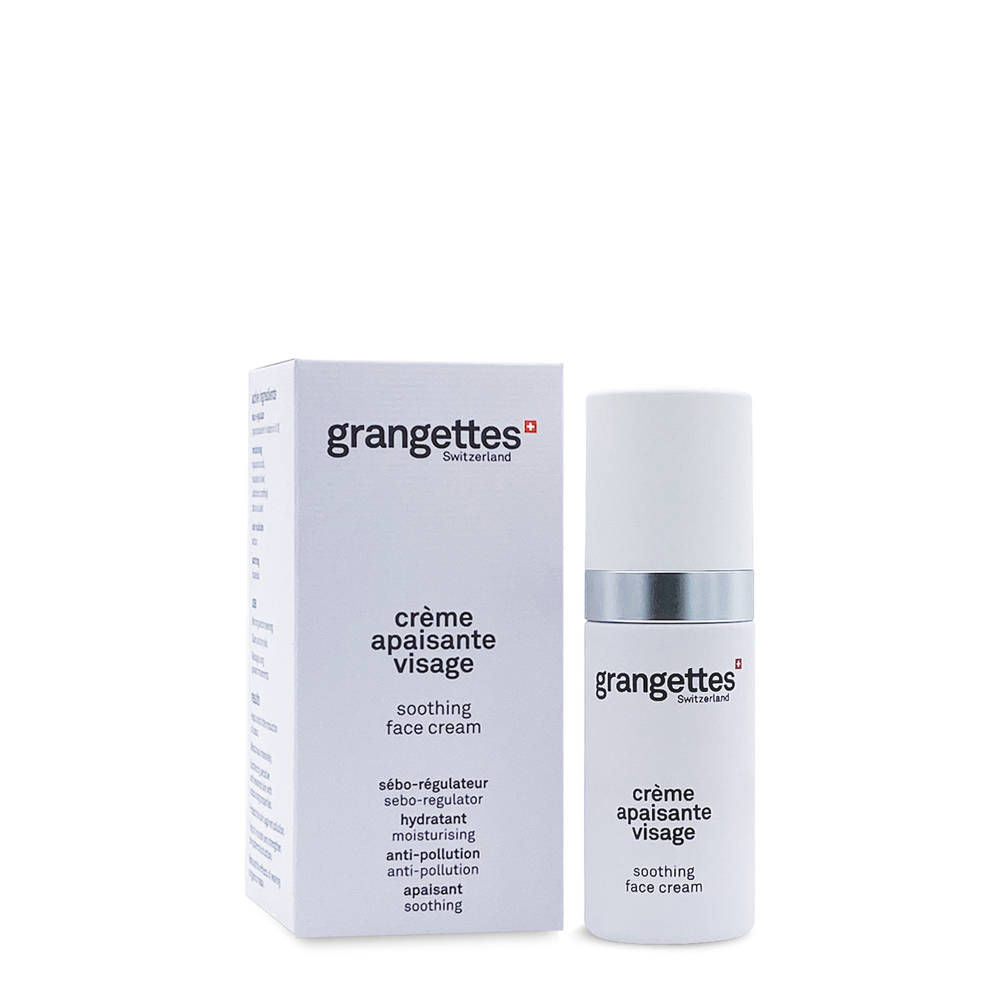Understanding acne and its causes
Acne is modulated by two main factors: hormones on the one hand, and bacteria on the other. Indeed, under the influence of hormones, the skin produces too much sebum, this is called hyperseborrhea. The cells of the follicle, for their part, multiply, this is hyperkeratinization. These two phenomena cause blockage of the pores of the skin, causing acne breakouts to appear.
Since acne is dependent on hormones, it is often found during adolescence, a major period of hormonal upheavals. In adulthood, certain events such as pregnancy, menstruation, menopause or even taking the pill disrupt hormonal balance and lead to an increase in acne.
But hormones are not the only ones to influence the onset of acne. Indeed, a bacteria called Cutibacterium acnes (or Propionibacterium acne), which lives perfectly normally on everyone's skin, also plays a major role in the occurrence of 'acne. Under the influence of hormones and changes in sebum, it reproduces quickly inside the pores, which can cause inflammation and thus stimulate the appearance of acne lesions.
Blackheads, whiteheads, cysts...
Acne comes in many forms, including blackheads , whiteheads, papules, pustules, and even cysts. With acne, the skin is oily and shiny, and the pores are enlarged. This condition mainly affects the face, but can also develop on the forehead, back, back of the neck, and front of the chest.

Other factors that make acne worse
If hormones and the cutibacterium acnes bacteria are the cause of acne, other factors can make it worse:
- Stress: it can cause acne breakouts by triggering an increase in cortisol, a hormone that stimulates the production of sebum;
- Diet: diet would have an impact on the development of acne. Indeed, certain foods rich in sugars, or too fatty, as well as fatty dairy products could aggravate the symptoms of this skin condition;
- Cosmetic products: unsuitable or comedogenic products (which clog pores) can encourage the appearance of pimples on the face and body.
What daily treatments to pamper acne-prone skin?
The first step in treating acne-prone skin is to adopt a suitable, regular and gentle skincare routine. It is essential to avoid aggravating inflammation and the appearance of imperfections.
Perform a gentle cleaning
Cleansing is a crucial step in a skincare routine, and this is even more true when you have acne-prone skin. It's important not to use harsh cleansers that risk stripping the skin, as this can lead tooverproduction of sebumin response. Here are some tips for effective cleaning:
- Use a gentle, soap-free cleanser, formulated for acne-prone skin, preferably with ingredients such as salicylic acid or benzoyl peroxide;
- Wash your face twice a day, morning and evening, but also after intense physical activity to remove sweat, oil and impurities;
- Avoid rubbing too hard, as this can irritate the skin. Use gentle movements with your fingers to massage the face.

For this step, the Grangettes purifying gel is your ally: it eliminates impurities and excess sebum , to leave the skin clean and radiant. It offers, thanks to papain , a gentle exfoliation, which eliminates dead skin cells that can clog pores.
- Regular price
- 41,35 €
- Regular price
- Sale price
- 41,35 €
- Unit price
- per
Moisturize your skin every day
Even though acne-prone skin is oily, it still needs moisture! Well-hydrated skin is less likely to produce excess sebum . So, opt for a moisturizer that is non-comedogenic (won't clog pores) and has a lightweight texture. Creams with ingredients like hyaluronic acid can help maintain a good level of hydration without weighing down the skin.
Grangettes Soothing Face Cream is enriched with vitamin B12, known to regulate sebum production. Hyaluronic acid, olive squalane, allantoin and betaine , meanwhile, deeply hydrate the skin, making it soft and supple. To hydrate and pamper your acne-prone skin, it's a great ally!
- Regular price
- 40,20 €
- Regular price
- Sale price
- 40,20 €
- Unit price
- per
Protect your skin from the sun
Protecting your skin from the sun is important, especially if you're using acne treatments that can make your skin more sensitive to UV rays. Choose a non-comedogenic, lightweight, broad-spectrum sunscreen (SPF 30 minimum) to protect your skin from sun damage and prevent acne-related dark spots .
Hygiene and lifestyle: the right actions to limit acne
Lifestyle and hygiene also play an important role in the treatment of acne.
Do not touch your face
Touching your face, scratching or popping pimples can cause superinfections, scarring and delay healing.
Change sheets and towels regularly
Sheets, pillowcases and towels easily accumulate bacteria, sebum and impurities, which can clog pores. It is therefore recommended to wash them frequently, approximately once a week or every two weeks.
Avoid trigger foods
Certain foods, such as dairy products and foods with a high glycemic index (like sweets and processed foods), can contribute to inflammation and breakouts skin.
Opting for a balanced diet rich in fruits, vegetables, and anti-inflammatory foods can improve the condition of the skin. zinc, which is found in seafood, egg yolks and even legumes, also helps you fight inflammation. This is also the case for spices, which you can add to all your dishes!
Finally, omega 3 are real natural anti-inflammatories, and therefore particularly good foods for acne-prone skin. They protect it and contribute to good healing. They are found in fatty fish, flaxseeds and organic first cold pressed oils.
Manage stress
Stress can exacerbate acne, particularly by increasing levels of cortisol, a hormone that stimulates sebum production. Stress management techniques like meditation, yoga or regular breathing exercises can help control breakouts.






